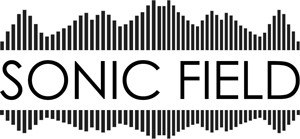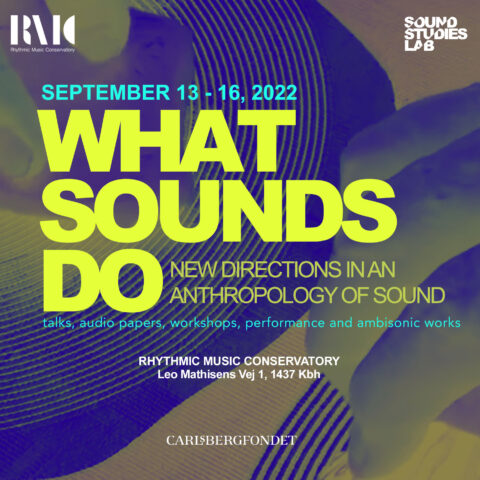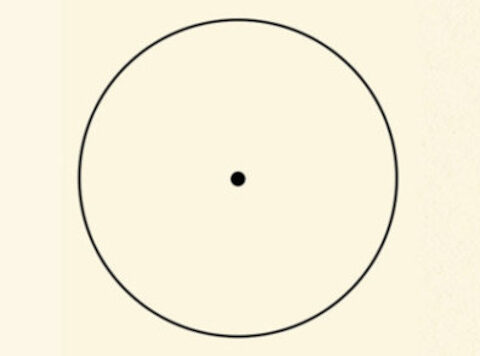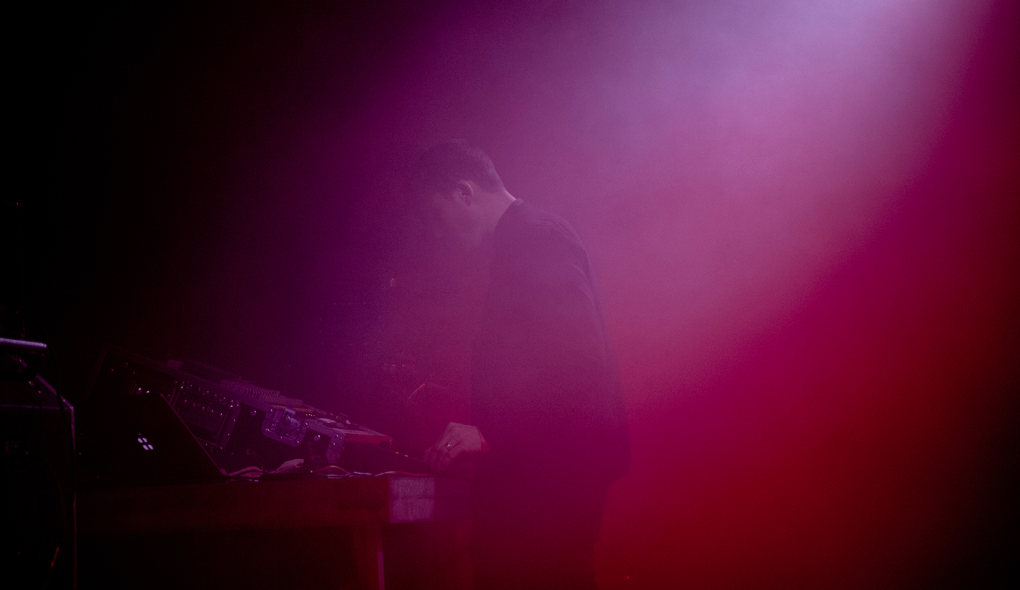
[infinite grain is a series of interviews inspired on microsound procedures, exploring a wide variety of topics in dialogue with artists who work with sound on installation, composition and improvisation]
Sound is the soul of every ritual. Listening, rather than placed in time and space, aims to a trance in time and space, as a ritual of improvising not only with objects but with perception. It is more than a trip, more than just a tour, more than being suspended in what is sounding; it’s also about being part of the sensorial fantasy, being able to question any limits of what is heard. Because if it is a ritual it implies an intention and therefore not necessarily fixed, not necessarily rational and not necessarily systematic, but rooted, somehow, in the transcendence that the listening act prints in the process of playing and being perceived, the participation allowed to the audience during the actual process of sound.
Australian artist and ROOM40 curator Lawrence English can be the perfect meeting point of such dynamic, whose work can be assumed as a way of going beyond predefined structures, dominant discourses or perceptual hegemonies, thus searching the sound not only in the sound itself, but in a bridge with the listener, getting into a non-dualistic approach in which both sender and receiver become one, converging in sound and its fading, its activity, its vibration. This makes his work hard to place, and even if perhaps any sound work cannot truly placed somewhere, the powerful conglomerate of signals this artists weaves, is specially difficult to put in words. Despite of being unallocated, English manages to invite the listener to dislocate but to find a new place, not fixed, but movable around the inhospitable sonic flow, that continuum of mutating, unstable, fragile and fully diluted forms.
Such dissolution opens spaces for closely valuing sound matter from its temporality, in which events that are part of the very texture of sound, are reflected in the composition in a concrete but sinister way in which fixed time becomes impossible, even when it seems to be the axis of the sound composition process per se. It is ultimately impossible precisely because it doesn’t allow stability, exploited in this case in aesthetic, poetic and musical procedures. Lawrence English does assume the transience of sound in his favor, valuing its constance and fading and creating a texture that allows an ever-changing dynamic between the sonic/physical experience and the ghostly/imaginary consequence of listening. This results in an abandonment of time which paradoxically allows a reunion with it: in the simple present moment, in the ubiquitous transmutation of the sonic experience.
Both in composition and performance, this sonic architect offers a mystery which while being oceanic and loaded of sound, finds also a way of being deserted and faint, always conducting to a rapt contemplation of sound passages, leading the listener to also become a ghost, an invisible illusion, never finished and always volatile; but so present, so intense, so vivid, that it becomes possible to break any scheme of consciousness and enter into another stage of the ritual: a silent, unspeakable and captivating, intimate and profound encounter, where the resonance that seemed to wander in the air and hit the bodies physically, becomes a fascinating universe that invites to an active and liberating disposition.
Hey Lawrence, what are you listening at this moment?
Literally this very second? Well that would be David Bowie. I am on a flight to Brisbane from Berlin and I’ve just spent the last few hours listening to Bowie being amazing by just how extraordinary the mixes on some of those mid seventies and later seventies records were. Utterly radical techniques, hard panning and very curious character of the tone of instruments and vocal placement. Still very provocative and inspiring as all great music should be.
I love that you present yourself as a ‘professional listener’. What’s behind that and how that let you think it is (at least in a subtlety) different than a ‘sound professional’ as such?
Listening is at the root of our appreciation of and ultimately our apprehension of sound. We might hear a sound, but unless we actively listen to it, the sound remains inert and in some respects meaningless. As much as I joke about the idea of a professional listener, it is the one activity that unites the ways in which I work. It is the thread that ties up the many aspects of my life – from label or exhibition curation through to production and my practices in field recording. All of these experiences rely on me being an agentive and critical listener.
As you’re also into philosophy, I wonder how do you think it affects the way you conceive sound and also how you relate your philosophic pursuits with the sonic ones and vice versa. How do you think your musical work affects you as a human being?
I’m very interested in the ways we come to create a discourse around sound. Up until about a decade ago, there was a distinct lack of expansive critical writing directly addressing sound. I’d like to think this is in the process of being addressed by a field of writers at present. It’s important to build a web of ways through which we can contemplate and problematise out relationship with sound.
Historically, the languages and understandings held around music have been applied to sound more broadly and I feel this has largely failed. Music is one of the language of sound, and to try to invert that and analyse sound through the lens of music seems problematic at best. I’m very interested in how it is, as Foucault pointed out, discourses systemically for the objects of which they speak. I sense, as we speak, write and think more about sound, the richness of experience will open right out. I think as well, these kinds of conversations open the way for more people to become intimately involved in sound.
How do you think we can properly theorize the sonic experience? There are sound studies and acustemological endeavours, but when it comes to listening, it’s often hard to describe what’s going on or sometimes not possible to rely on concepts. What would you say is the correct way for writing and/or thinking about sound? For example, do you think we strictly need metaphysical categories/ways?
I’m not sure there is a ‘correct’ way of writing about sound and in some respects what writing represents as a way to engage in sound. I think broadly, we have always struggled with subjectivity and our senses. We’ve been largely unable to represent the affect these senses provide beyond the confines of subjectivity. But where these challenges are not a barrier, rather they call for us, as interested parties to these questions, to come up with creative ways through which the experiential might be translated.
There’s no question that this is a difficult and tender problem, but we’re seeing a great many people coming at it right now. This swell of interest will no doubt be a massive help into the future discourses around sound.
Related to that is something you mention at 15questions interview when talking about acousmatic and non-cochlear ways of sound. You talk about the impossibility for connecting those extremes and that you find yourself “in the middle”. Why do you think there is no connector? Also, if we start to list more listening modes, we would find this subjective and pluralistic richness of listening at its full. However, how do you think we can relate all of them in our life experience? Could you please expand what’s behind that “middle state” you bring up?
It’s not so much that I feel there’s no connection possible. More that I feel at this stage of the ‘debate’ we’re seeing a lot of conversation at the extremes. This is entirely understandable I suppose. We’ve had one dominant paradigm ruling the approach to sound for the better part of a few decades. Now we see people rallying against that, marking out a point of complete refusal towards that idea.
I am more interested at the points of nexus, rather than one refusing the other, I am interested at the points of overlap, of excess, where one spills into the next. I feel strongly this is where the interesting collage of ideas takes place. I’m less interested in the clean delineation.
Following that, how much concerned are you with the act of working with sound beyond the listening limits and how do you think our way of perception condition affects our sound relationship/conception?
I think anything that sits beyond the everyday consciousness is worth investigating. What particularly interests me with regards to sound, is our ability to fill up so much of the frequency spectrum that has no biological engagement with our species. Our use of radio waves and the electro-magnetic emissions is pretty startling. If anyone has every tried to make VLF recordings for example, the detection of electro-magnetic sound from lightning strikes, solar wind and the like, the first thing you realise is how much 50 cycle and 60 cycle power hum there is around us. It’s impossible to make these recordings unless you move several kilometres away from the nearest powerline. Likewise the motor and sonar noise in the ocean greatly reduces the capacity of marine mammals to communicate effectively. We are largely unaware of this intrusion as a species and when we are aware of it that makes little difference it seems.
I think for these reasons alone this is an important consideration to have in mind regularly.
When thinking about composing, performing and actually developing your sound work, how would you say is your perspective towards the listening experience and towards the audience? Is there something you seek when listening to what you’re creating and what you aim to propose to the people? How intimate is your relationship with the listener and why?
I feel the easiest example of this would be in performance. I draw a fairly strong distinction between the realms of studio and stage. In performance, there’s a certain critical sound pressure threshold that can be reached that brings the body into vibration. This is a lot less possible in situations of home listening and I sense it’s one of the reasons interests in live music and performance haven’t wained in recent times.
For me, when I am composing with the live setting in mind, I consider the physical potentials of the music to engage and ultimately consume the bodies of the audience. I find that engagement incredibly seductive and very intimate in that it’s entirely individuated, but at the same time is shared amongst a space of people. There’s an elegant tension in experience there that can be explored and a lot of my live performance in about those incursions into the body.
Something I completely love from your works is your sensibility you have towards the transitory aspect of sound, its nature between presence and oblivion, or as you said, “a kind of struggle between almost nothing and almost everything”. How’s your position towards this ephemeral nature of sound? is temporality present with some aesthetic interest in your work?
What is so desirable about working with sound for me is it’s constant extinction. Just as sound is perceived by the ears or the body, the actual matter of sound that the vibrations in the air have passed and can longer be resuscitated. In the moment sound is recognised and analysed, it is buried in the shallow grave of memory, it cannot be returned to under the same conditions as first experienced. I think this is a wonderful reminder to be present!
Do you identify, separate and/or relate the emotional and intellectual aspects of music/sound? Or do you have a particular way of analysing or listening pieces you create or curate?
I like to think these two elements are always running in parallel. And in some senses a heightened sense of one, allows the other to flourish also.
How much your workflow changes over time and how important is for you to evolve your methods and why? How vital is technology in the art you propose and how do you think is your relationship with it?
I recognise that I am a product of this age. Moreover my work methodologies are absolutely relational to the possibilities that technologies provide. To make what I do now say 20 years ago would be possible, but would require such a crushing list of hardware, it’d be too pricey to afford. So I am always conscious of the possibilities to create this work being utterly tied to the developments and affordability of technology.
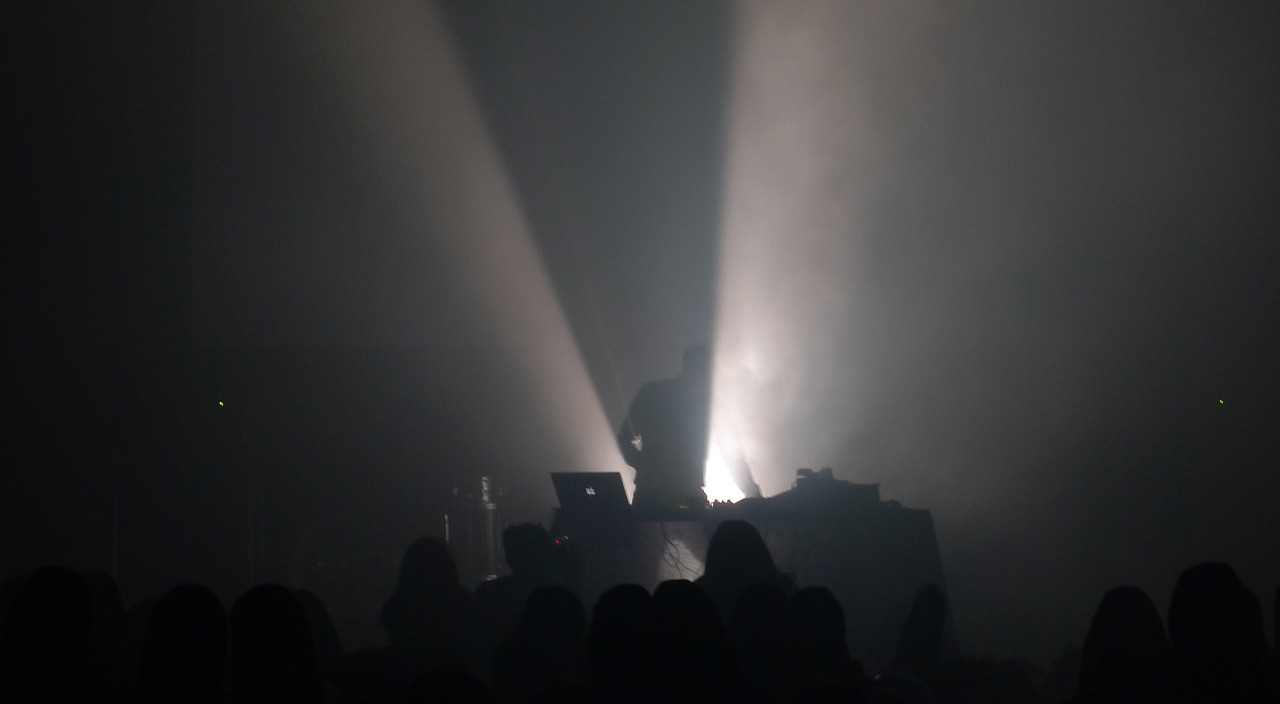
Do you talk about you creating works that make people transcend through sound, be present in other ways or just change something on themselves. How is that achieved from your way of working? Is it a wat of prosecuting a spiritual task? I perceive it as a some shamanic and hermetic way of working, don’t you think?
Historically, live music has always been about some kind of ritual. In traditional cultures, sometimes that is about the ritualistic desire for transcendence. Even western art music has a kind of social ritual within it. The costumes, gestures and interactions of audience and artists are very rigid and inscribed with a certain code of symbolic power.
I think for me, in performance, it is about a desire to transcend. I want, at once, for people to be very present, but also very distant…lost in themselves. This might sound quite counter-intuitive, but I feel this is possible. I know in some concerts I have had this sensation, of being very aware of myself, but having the music pulling me to a place that is not really of me.
In an interview for Wondering Sound you mention something I find very interesting: that you don’t want your listeners to have instant comfort so they need to spend their time in order to create a “richer experience”. Why do you think is it richer? Also, could you expand more your view around this effort we as listeners could do? Do you think that could also apply to everyday sounds we listen to?
I believe very little in this word comes easy. That which does can be momentarily satisfying, but in the long-term fades away. With listening, I think inherently we are lazy listeners, so we need to become engaged, to take on some agency to really begin the process of uncovering the potentials of audition. I think once this point is reached, there’s an additional richness that opens out like a vista. It’s the same as using your body in exercise, at first it can be very tiring, but as you develop that muscle mass your body is conditioned and the experience becomes one of pleasure more and more and less about fatigue.
Does sound establish for you a variation of space and time in some way? How you think the exploration of sound expands our knowledge of the universe itself and transform our schemes for approaching reality?
Sound is an amazing revealer of architecture, there’s no question about that. Even subconsciously as we are moving through an environment, our ears are feeding back to our mind, informing us about what it is that is underfoot or moving around us. When you focus on your audition in say an urban setting you can tell what you are walking on, how far a building is by the reflection of your shoes hitting the footpath and the like. Our ears can reveal a great deal more than our eyes should we be willing to be attentive to them.
Do you think about sound as a cosmological axis? And in that way, what do you think about a territory such as microsound in which such concepts like texture, grain, sonic complexity, etc are exposed in such a particular way? How do you think we can relate that realm of the micro with the notion of the macrosonic structure? What do you think about this atomic yet massively huge complexity of sound?
I think the perspective we choose to apply to our listening are vitally important, especially when considering the nature of creativity from our ears!
How would you define silence and in how is it present in the way you propose your work both theoretic and practical? And what about noise? Also, do you actually relate both “sides”?
I think silence might just exist at the moment of our death. As our consciousness retreats inwards and our abilities to sense are reduced, then maybe, for a second before the brain completely fades might we find a moment of silence. Until then we must contend with the degrees of noise that ebb and flow across us.
Do you think is it possible to think about a culture of listening? How important do you think is to study listening from several disciplines?
I do and I sense it’s already well established. It’s now time to start exploring how it is we can explore this culture.
Last but not least, could you please recommend us something for us to read or listen?
Listen: close your eyes wherever you are and listen now deeply for one minute, allow your ears to reach beyond your horizon of vision.
Read: the peregrine by J.A. Baker
Interview conducted by Miguel Isaza in October/November, 2015.
